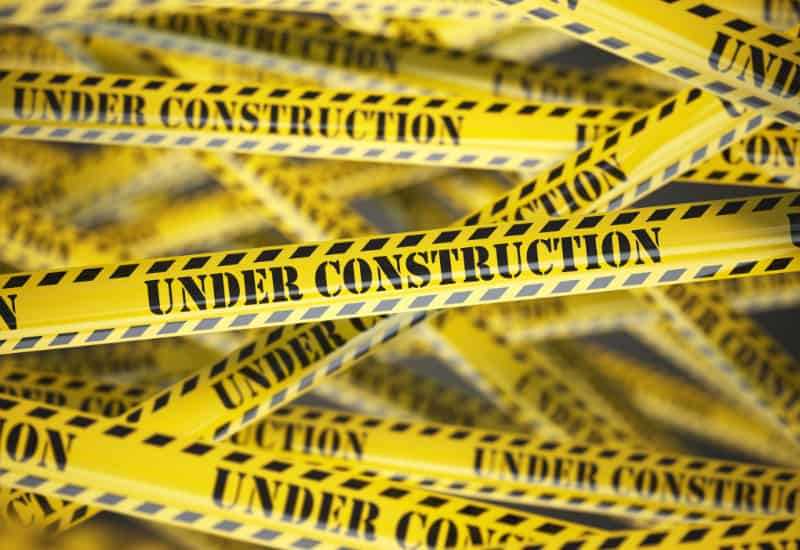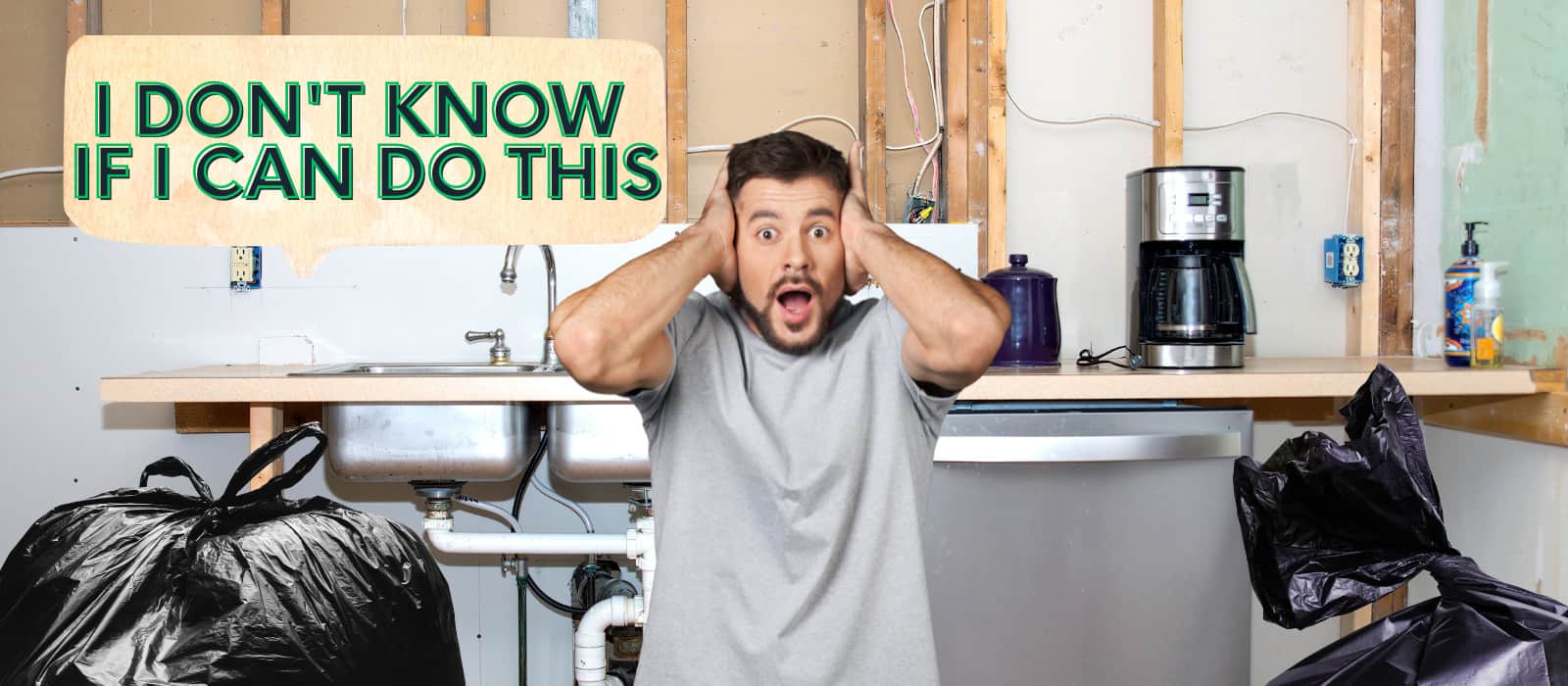Embarking on a kitchen remodel can be both exciting and daunting for homeowners. It’s a chance to transform one of the most important spaces in your home, but it also raises the question of whether you can comfortably stay in the house during the process. The answer is yes in many cases, as long as you take a few key steps to accommodate life without your regular kitchen facilities.
While your kitchen is under construction, it’s essential to establish a temporary space for meal preparation and storage. You may need to get creative with your layout and rely on essentials like a microwave, toaster, and smaller appliances. Remember to stock up on paper goods and plastic utensils to minimize dishwashing in the absence of a functioning kitchen sink.
The key to staying in your home during a kitchen remodel is flexibility and a willingness to adapt. With some planning and patience, you’ll be able to navigate the experience without too much stress and eventually enjoy the benefits of your newly updated kitchen space.
Factors to Consider
When deciding whether to stay in your house during a kitchen remodel, it’s important to consider several critical factors. In this section, we’ll discuss these factors that can influence your decision, including Budget and Schedule, Homeowners’ Routine, Construction Zone Safety, Noise and Dust, and Children and Pets.
Budget and Schedule
First, think about your budget and the project’s schedule. A typical kitchen remodel can take anywhere from six to twelve weeks. Ask your contractor about the timeline and how it will impact your daily routine. Also, consider the costs of alternative accommodations, such as renting an RV or staying with friends or family during construction.
Homeowners’ Routine
Consider your daily routine and how much disruption you’re willing to tolerate. You’ll need a temporary kitchen space with must-have appliances like a refrigerator, cooking range, or grill. Remember that some kitchen tasks might be more challenging, and you may need to rely on eating out or ordering in more often.
Construction Zone Safety

Think about the safety of the construction zone, especially if you have young children or pets who could wander into the area. Speak with your contractor about measures to keep the work area contained and separate from the rest of your home. This can include temporary walls or barriers to limit access.
Noise and Dust
Consider the noise and dust that will inevitably accompany the remodeling process. Construction work generates a lot of noise and dust, affecting your comfort levels, primarily if you work or study at home. Talk to your contractor about the times they plan to work and any steps they’ll take to minimize noise and dust, like putting up dust walls.
Children and Pets
Lastly, consider the impact of the remodel on your children and pets. Will they be able to tolerate the disruption, or would it be better for them to stay elsewhere during the process? Ensuring their well-being during construction can help maintain a sense of normalcy amid the chaos. Careful planning and communication with your contractor can mitigate potential issues and provide a more comfortable experience for everyone involved.
Preparing for a Remodel

Temporary Kitchen Setup
While your kitchen is being remodeled, you’ll need a temporary space for meal preparation and cooking. Set up a makeshift kitchen in an area that’s out of the way of construction. This could be a spare room, garage, or an unoccupied living room corner. Consider using a folding table or a portable workstation to create your temporary kitchen space. Don’t forget to include essentials like cutting boards, cooking utensils, and a trash bin.
Meals and Appliances
Plan your meals ahead of time and stock up on non-perishable food items. Opt for simple dishes that can be prepared with minimal cooking appliances like a microwave, hot plate, or slow cooker. You might also want to rely on a small fridge and freezer for perishable items. Remember to stock up on paper plates and disposable utensils for easy clean-up. It’s also a good idea to treat yourself to takeout or dine at your favorite restaurant occasionally.
Protecting the Rest of the House
To prevent dust and debris from spreading throughout your home, create a barrier between the construction zone and the rest of the house. You can use plastic sheeting or temporary walls to seal off the area and consider laying protective flooring over your existing floors or carpets. Additionally, discuss with your general contractor ways to limit disruptions to your daily routine, such as working out specific construction hours. By taking time to prepare, you can stay in your home during a kitchen remodeling project without too much hassle.
Alternatives to Staying In

Rental and Temporary Housing Options
When planning your kitchen renovations, it’s wise to consider temporary housing options, especially if your home won’t have a functional kitchen for an extended period. Look into reputable and trustworthy housing options such as extended-stay hotels, rental homes, corporate housing, or short-term rentals. These options usually come furnished and provide the convenience of a construction-free zone.
Additional Costs and Savings
While staying in temporary housing during your kitchen renovation, keep in mind the additional costs involved, like rental fees and meals. However, you can save on dining expenses by choosing an extended-stay hotel or furnished apartment with a kitchenette. Equip your temporary home with simple appliances like a toaster oven, coffee maker, and crock pot to make cooking easier.
Remember that scheduling change orders and delays can further increase your expenses. Try negotiating with your contractor to minimize any changes, and look for summer sales to save on furniture or appliances for your upcoming remodel.
Managing Expectations and Stress
Managing expectations and stress is key to maintaining a positive experience during a kitchen remodel. This section covers three important aspects to help you do just that.

Communication with Contractor
Establish clear and open communication with your contractor to ensure a smooth renovation process. Discuss your renovation work timeline, budget, and any necessary adjustments to your living space, such as using a countertop oven in an alternative area while the kitchen is under construction. Keep the contractor informed of your expectations and strive for mutual understanding.
Being Flexible and Adapting
Flexibility and adaptability are essential when undergoing a kitchen remodel. Your living situation may change temporarily, requiring you to adapt to different setups like cooking in the basement or garage. Try to plan your remodel during a mild season like spring when the weather is more conducive to using outdoor spaces for cooking and other needs. However, changes may still be necessary depending on the progression of the renovation, so being open to adjustments can greatly alleviate potential stress.
Creating Your Temporary Kitchen
While your kitchen is being remodeled, you’ll need to create a temporary kitchen space, as we mentioned earlier. To be better equipped for the challenge, identify an area in your home that is both comfortable and functional for your needs. This could be a workable corner in your living room, basement, or even the garage.
Make sure to set up the essentials, like a countertop oven, microwave, and a small workspace to prepare meals. Store frequently used utensils and cooking equipment close by for easy access. Organize your temporary space efficiently so that you can maintain your daily routine with minimal disruptions.
When in doubt, call in that favor from your brother or in-laws and hope to have your sanity intact by the end of your adventure!



